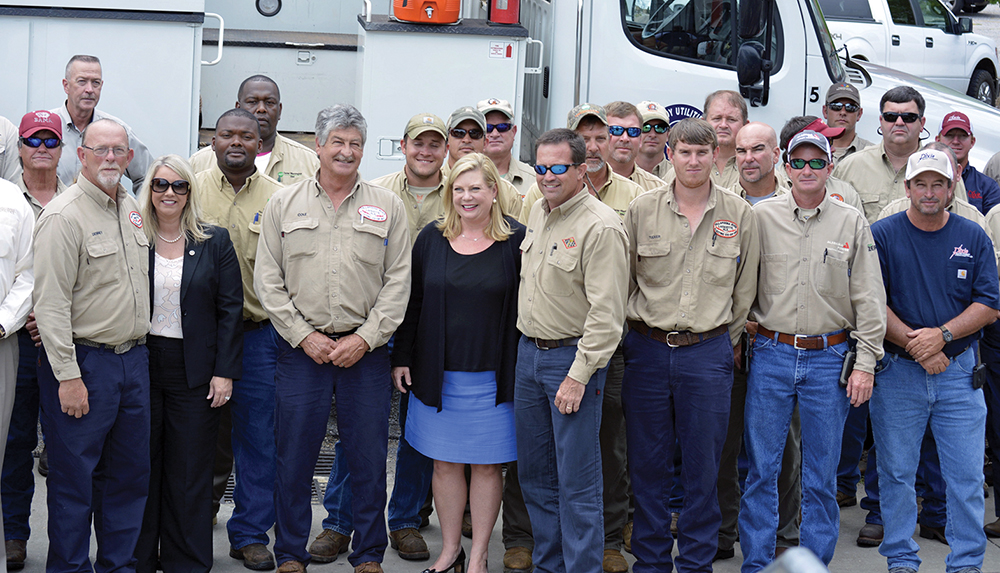
On June 5, Alabama will recognize the state’s linemen, who work in often brutal conditions to ensure we all have safe and reliable power. But actually, most linemen shun the spotlight.
For them, the sense of accomplishment they get from serving the people in their communities is what makes all the physically demanding and dangerous work worthwhile.
“The linemen, deep down, they take so much pride when they get your lights back on,” says Michael Kelley, director of safety for the Alabama Rural Electric Association (AREA), who worked for several years as a lineman for Central Alabama Electric Cooperative. “When he gets your lights back on, I can promise you, he gets back in his truck, and he’s glad, because he did something to help you.”
Alabama Living is pleased to promote Lineman Appreciation Day, giving us the chance to highlight the men who keep our power on and who leave their families in the middle of the night to restore it when storms or catastrophic events take a destructive turn. Four linemen from rural electric distribution cooperatives around the state share their thoughts about their jobs, how the jobs have changed over the years and how they’ve created fulfilling careers.
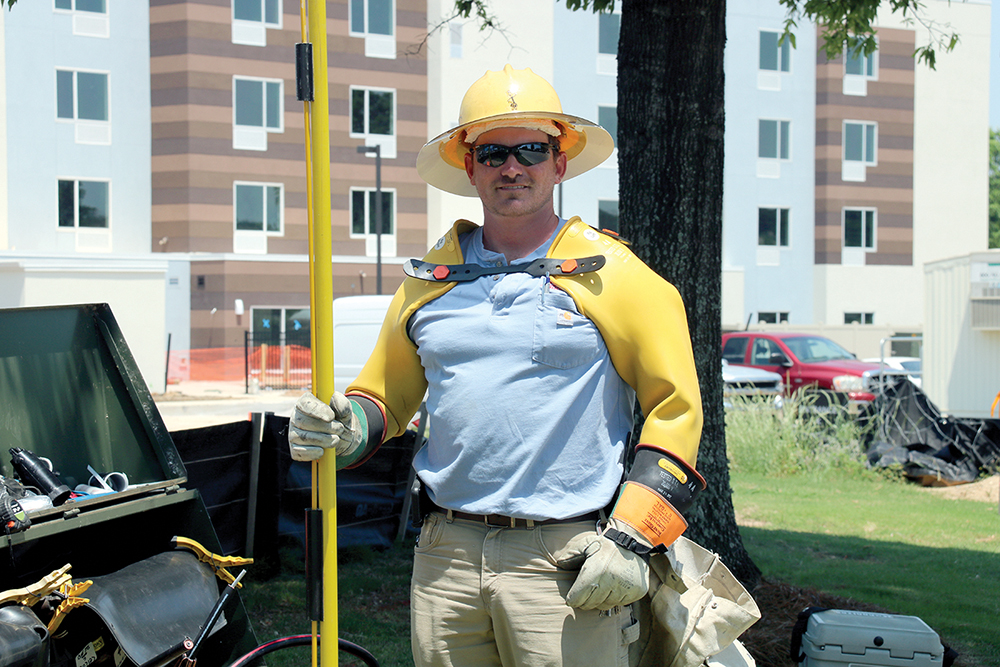
Safety
Linemen out in the field work with thousands of volts of electricity, high atop power poles, along roadways where motorists fly by and in physically challenging environments. The hazards will always remain, but more than ever, Alabama’s cooperatives are making safety a top priority.
Roger Thrower, now a crew foreman at Pioneer Electric Cooperative with almost 30 years of full-time service, remembers when a pack of pocket T-shirts for $10 was a lineman’s uniform. Now, all the clothing he and other linemen wear is fire-retardant, but the clothing is only a small part of a lineman’s safety gear.
They wear the familiar hard hat and safety glasses, as well as rubber gloves and sleeves, a climbing belt to carry all the tools they might need, a fall restraint device, hooks (which strap onto boots to enable them to climb poles), and when they’re in the bucket truck, a harness and fall protection lanyard.
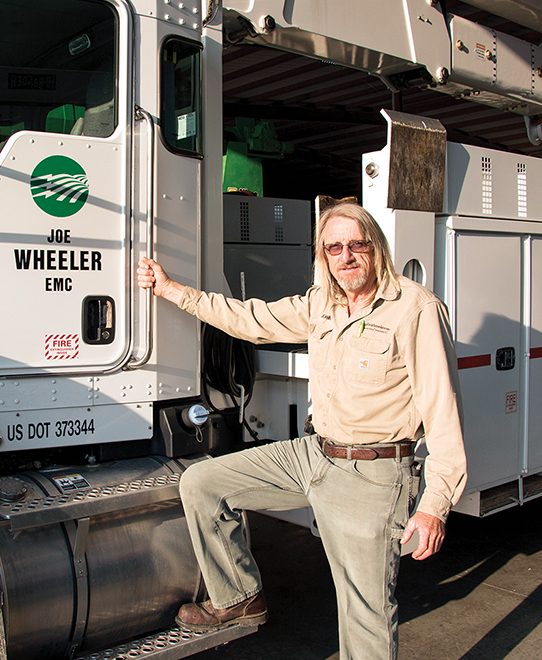
Johnny Kirby, who’s been with Joe Wheeler EMC for 30 years, says the job is safer now than when he started, but he and other linemen are acutely aware that the possibility for something to go wrong is always present.
“You’ve just got to watch each other’s back when you’re out there,” Kirby says. “We talk about that every day on the job. Just be aware of the danger.”
Bill Cobb has been with Wiregrass Electric Cooperative for more than 50 years, and reflected on those years of service in a 2015 article written by the co-op. “When I started, everything was done by hand, and it was really difficult work, and it was hazardous work.” But bucket trucks and improved tools and techniques have made the job much safer.
AREA’s Kelley thinks that safety enjoys a heightened awareness in all aspects of our society today – vehicle safety, airline safety, school safety. So the fact that co-ops and linemen spend a great deal of time talking about safety, and practicing in the field, is no surprise.
“Used to be, it was, well, if we have time, we’ll talk about safety. Now, safety is what you do.”
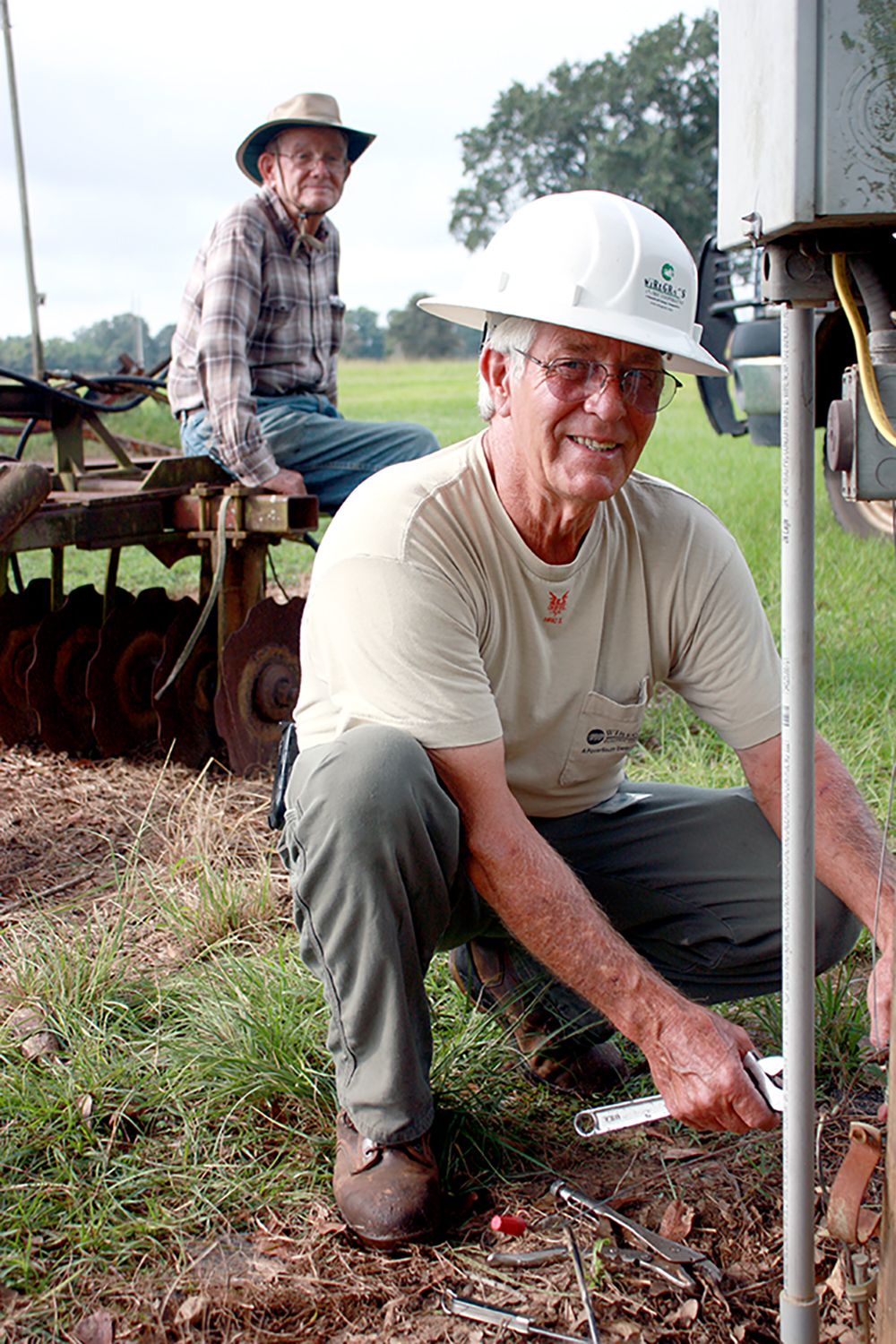
Storm restoration
Linemen often rotate on-call duties, when they have to be ready to respond to a weather-related or a catastrophic event. But they are always ready to help.
“It’s not just an 8-hour day,” says Caleb Duncan, a journeyman lineman with Dixie Electric Cooperative. “It’s a 24-hour, 7-day a week, 365-day job.”
He knows he may have to leave his family on Christmas morning to respond to an outage. “You provide a service that has to be on. It’s a commitment to work, because there’s a lot of times where you get called into work, and you’re needed.”
Linemen don’t just respond to outages in the co-op service area. In true cooperative fashion, Alabama’s co-ops respond to the call when another state’s electric utility suffers a catastrophic event, knowing that their sister co-ops will do the same in return.
Pioneer’s Thrower remembers the worst conditions of his career. He went to South Carolina after Hurricane Hugo devastated much of that state’s coastal area, and worked from dawn to night in knee-high water to restore power.
And there are times when linemen themselves are affected by a catastrophe. North Alabama’s co-op service areas suffered incredible devastation after the April 2011 tornadoes, and co-op employees were no exception.
“We had employees who lost their homes, but yet they left their families and came to work,” Kelley says.
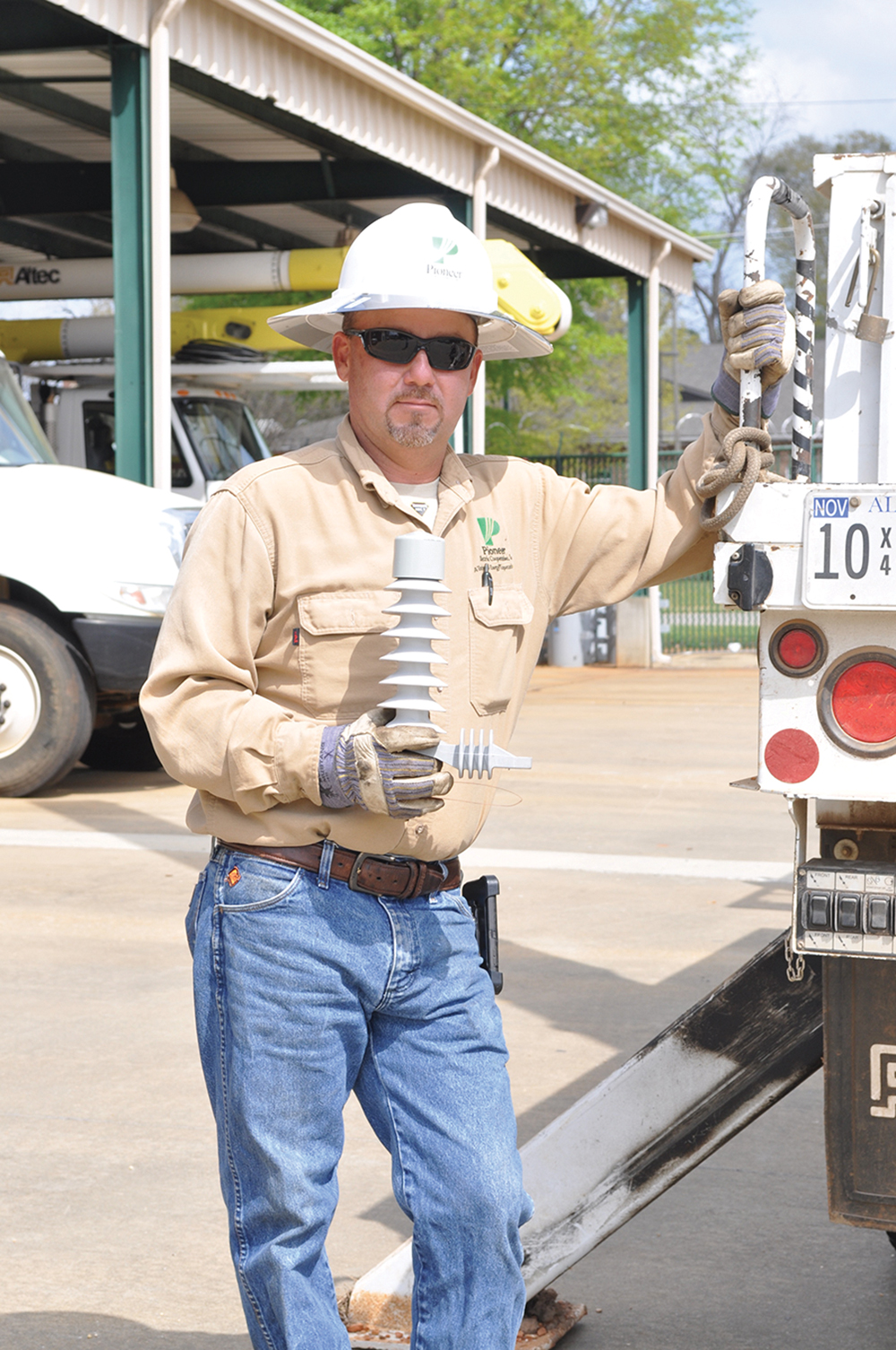
A fulfilling career
For these men, line work at the co-op is not just a job – it’s a lifelong career that offers stability, an opportunity to make a good living and an atmosphere that values family, service and hard work.
“It’s a really fulfilling job, it really is,” says Dixie’s Duncan. “You go off on storms when people have their lights off for a while, and you get to come in and help them. They really appreciate it, and you get a good sense of accomplishment.”
And no two days are ever the same, an aspect that linemen find appealing. “I learn every day,” says Kirby, of Joe Wheeler EMC. “It’s a good, interesting job. … For 30 years, I’ve enjoyed every day I’ve been here. You’ve just got stay with it and learn.”
Even after 50 years, Cobb says he wakes up eager to tackle whatever the workday’s challenges present.
“I keep thinking maybe I’ll wake up one morning and say I’m tired of it,” Cobb says. “But that’s sure never happened yet after all these years.”




